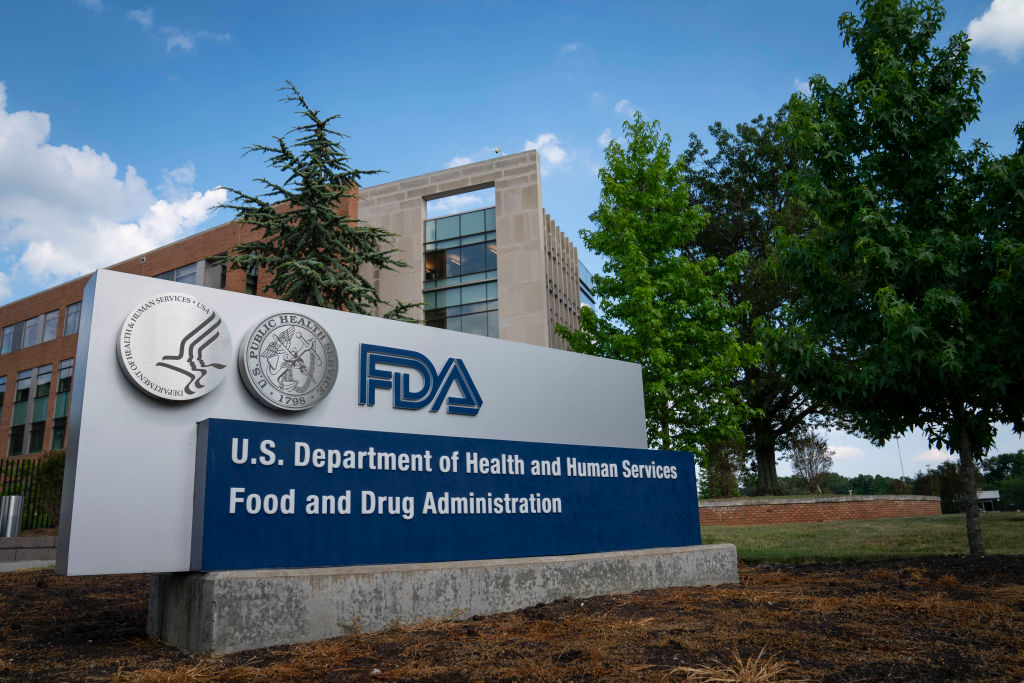FDA approves saliva-based coronavirus test viewed as 'major game changer'


The Food and Drug Administration on Saturday issued an emergency use authorization for the SalivaDirect COVID-19 diagnostic test developed by the Yale School of Public Health.
The test, which processes saliva samples to rapidly determine whether a person is infected with the coronavirus and does not require any type of swab or specific collection device, could be one of the first "major game changers in fighting the pandemic," said Andy Slavitt, a former acting administrator of the Centers for Medicare and Medicaid Services under the Obama administration, in a Twitter thread.
For starters, the process should be a lot more comfortable for people. It doesn't, as Slavitt puts it, require sticking "something four inches up a kid's nostril." But besides being painless, it's affordable — the materials are about $4, Slavitt said, and even when adding the cost of labor and overhead, its development is still cheaper than current tests.
The Week
Escape your echo chamber. Get the facts behind the news, plus analysis from multiple perspectives.

Sign up for The Week's Free Newsletters
From our morning news briefing to a weekly Good News Newsletter, get the best of The Week delivered directly to your inbox.
From our morning news briefing to a weekly Good News Newsletter, get the best of The Week delivered directly to your inbox.
And, because it's cheap and has a fast turnaround time, people will likely be able to get tested more frequently, which will in turn increase diagnostic accuracy.
Slavitt believes all of these assets could especially come in handy for schools, universities, and office buildings which theoretically need to ramp up testing if they want to re-open safely. It could also encourage more asymptomatic people to get tested.
The final reason Slavitt has high praise for the test isn't about the science. Instead, he pointed out that Yale, in partnership with the NBA, developed the test without any intention of making a profit. Tim O'Donnell
A free daily email with the biggest news stories of the day – and the best features from TheWeek.com
Tim is a staff writer at The Week and has contributed to Bedford and Bowery and The New York Transatlantic. He is a graduate of Occidental College and NYU's journalism school. Tim enjoys writing about baseball, Europe, and extinct megafauna. He lives in New York City.
-
 Is the US about to lose its measles elimination status?
Is the US about to lose its measles elimination status?Today's Big Question Cases are skyrocketing
-
 ‘No one is exempt from responsibility, and especially not elite sport circuits’
‘No one is exempt from responsibility, and especially not elite sport circuits’Instant Opinion Opinion, comment and editorials of the day
-
 Businesses are caught in the middle of ICE activities
Businesses are caught in the middle of ICE activitiesIn the Spotlight Many companies are being forced to choose a side in the ICE debate
-
 Trump HHS slashes advised child vaccinations
Trump HHS slashes advised child vaccinationsSpeed Read In a widely condemned move, the CDC will now recommend that children get vaccinated against 11 communicable diseases, not 17
-
 FDA OKs generic abortion pill, riling the right
FDA OKs generic abortion pill, riling the rightSpeed Read The drug in question is a generic version of mifepristone, used to carry out two-thirds of US abortions
-
 RFK Jr. vaccine panel advises restricting MMRV shot
RFK Jr. vaccine panel advises restricting MMRV shotSpeed Read The committee voted to restrict access to a childhood vaccine against chickenpox
-
 Texas declares end to measles outbreak
Texas declares end to measles outbreakSpeed Read The vaccine-preventable disease is still spreading in neighboring states, Mexico and Canada
-
 RFK Jr. shuts down mRNA vaccine funding at agency
RFK Jr. shuts down mRNA vaccine funding at agencySpeed Read The decision canceled or modified 22 projects, primarily for work on vaccines and therapeutics for respiratory viruses
-
 Measles cases surge to 33-year high
Measles cases surge to 33-year highSpeed Read The infection was declared eliminated from the US in 2000 but has seen a resurgence amid vaccine hesitancy
-
 Kennedy's vaccine panel signals skepticism, change
Kennedy's vaccine panel signals skepticism, changeSpeed Read RFK Jr.'s new vaccine advisory board intends to make changes to the decades-old US immunization system
-
 Kennedy ousts entire CDC vaccine advisory panel
Kennedy ousts entire CDC vaccine advisory panelspeed read Health Secretary RFK Jr. is a longtime anti-vaccine activist who has criticized the panel of experts
